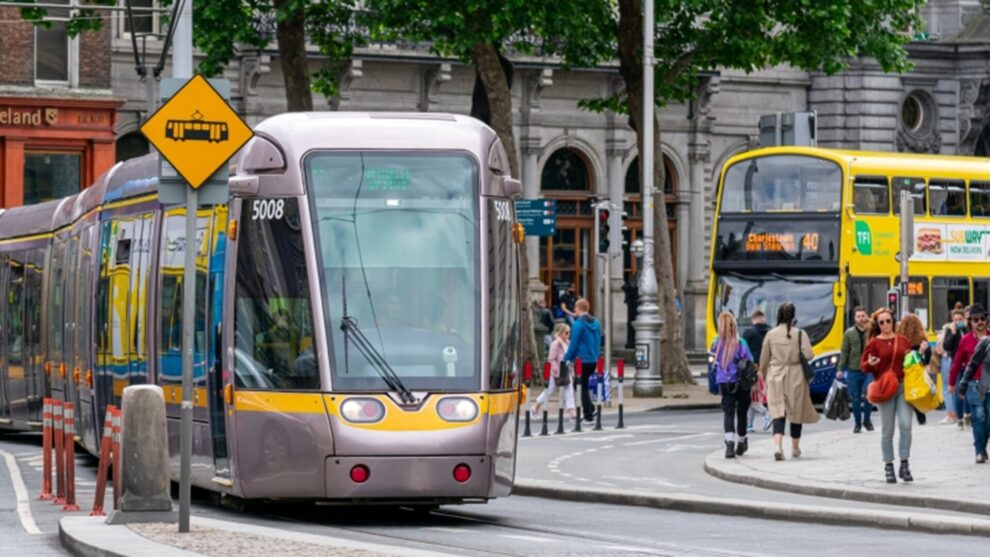Dublin, London, Amsterdam and Paris are among the most expensive and complicated European capitals when it comes to buying public transport tickets, according to a new ranking by environmental organization Greenpeace.
Topping the list are Luxembourg City, the Maltese capital of Valletta and the Estonian capital of Tallinn, all of which received the best possible score thanks to their free public transport offering.
The study , released on Wednesday, examined the cost and ease of purchasing public transport tickets in 30 European countries. In addition to cities, Greenpeace also ranked countries on their public transport ticketing offerings.
Better access to affordable public transport would “reduce our dependence on fossil fuels and our greenhouse gas emissions, improve the quality of our environment and help people cope with rising energy prices,” the study says.
Four criteria were used for the ranking:
- The simplicity of the ticketing system, for example whether the ticket covers different forms of public transport and is valid for all regions
- Price and availability of long-term tickets
- Discounts for socially disadvantaged groups such as students, the elderly and the unemployed
- the rate of VAT charged on tickets
Bulgaria is at the bottom of the 30-country table, with Croatia in 29th place, followed by Greece, Norway and Latvia.
Luxembourg and Malta, both countries with less than a million inhabitants, took first and second place. They offer free public transport.
Despite the Irish capital’s poor performance, the island nation fared better overall, coming in at number 13.
Bottom of the list
As well as the price, which is Dublin’s second-highest after London, the Irish capital has also been penalized for not having a monthly public transport pass that covers all modes of transport.
There are monthly subscriptions for buses, trams and trains, but these must be purchased separately.
Amsterdam, often cited as a green example, failed to impress in the rankings, finishing 28th, the second worst result of any EU city. The Dutch capital has been criticized for the high price of the annual pass, which stands at 1001 euros (83 euros per month).
The authors of the study also pointed out that carers of people with disabilities can travel for free in Amsterdam, but people with disabilities cannot.
The French capital, which is 27th on the list, lost points because the price of an annual pass is €925 and long-term tickets are only available for the greater Île-de-France region. A cheaper option exists only for the city of Paris itself.
Bulgaria received no points in the country ranking, while Croatia and Greece received only two points each.
Bulgaria and Croatia have been criticized for applying the standard VAT rate to public transport tickets, which the study’s authors say also applies to luxury goods.
Croatia received points for a pilot project that gives primary and secondary school students free transport and free train travel for Ukrainian refugees.
Apart from a temporary VAT reduction on public transport tickets, Greece “offered nothing else that would be relevant for scoring in this ranking”.
However, Athens, which ranked 9th in the city rankings, was praised for offering free rides to the unemployed.
At the top of the list
After the cities that do not use tickets at all, the Czech capital has the cheapest public transport ticket among the European capitals surveyed.
With an annual ticket price of 156.62 euros, Prague achieved 98 points.
However, there is a catch: This low price is reserved for locals, non-residents have to shell out 334.69 euros for an annual ticket.
The Slovakian capital Bratislava, where the annual ticket costs 199 euros, achieved 91 points.
Students, the elderly and people with disabilities receive a 50 percent discount. The former communist country offers free travel to former political prisoners and anti-communist resistance fighters.
Austria took third place in the country ranking, mainly thanks to the introduction of a “climate ticket” valid for all public transport in the country. However, Greenpeace criticized the price of 3 euros per day, which was “not affordable for everyone”.
Germany was hailed as “pioneering climate tickets in Europe” for the €49 ticket that was introduced on Monday.
Klima-Tickets
Greenpeace is urging European governments to introduce cheap public transport tickets covering all forms of mass transit across Europe to reduce transport emissions. This would help Europe meet its climate targets while improving mobility.
The EU institutions should help draft such a ticket, with guidance from the European Commission.
“Governments must introduce easy and affordable ‘climate tickets’ for public transport to lower people’s bills and reduce the oil consumption that is driving our planet towards climate catastrophe,” said Lorelei Limousin, Greenpeace’s EU transport activist.
Source: euractiv









